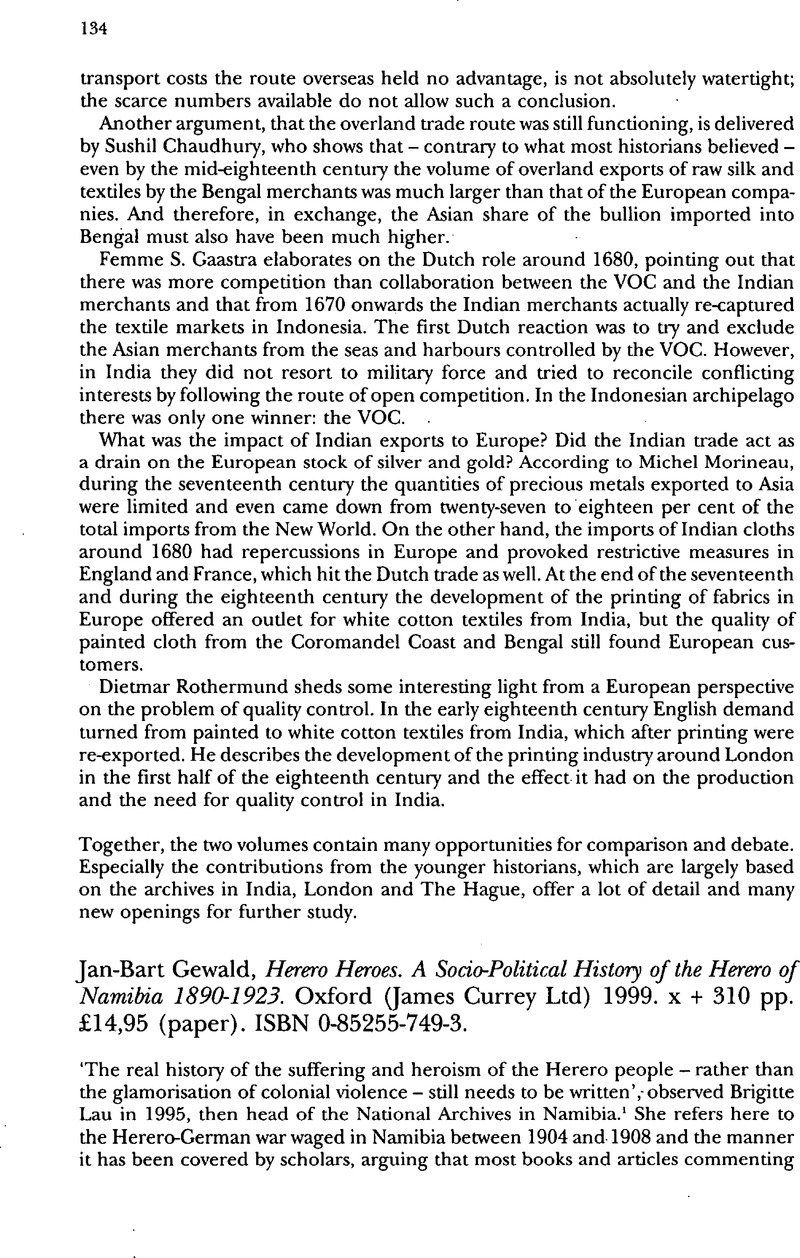No CrossRef data available.
Published online by Cambridge University Press: 22 April 2010

1 Lau, Brigitte, ‘Uncertain Certainties – The Herero-German War of 1904’ in: History and Historiography, 4 Essays in Reprint (Windhoek 1995) 46.Google Scholar
2 Ever since the arrival of the German military in Namibia, a considerable number of Herero were employed by the German army. When the Herero-German war broke out, some of them continued to serve in the German forces. After the war a substantial number of orphans were taken into the German military service.
3 As the South African forces occupied GSWA, the Herero abandoned their employers to establish themselves in areas of their choice. The South Africans were unable to force the Herero to stay with their employers, and the failing of the grain harvests in Ovamboland induced young men to head south in search of employment, where they replaced the Herero. These factors facilitated the movement of the Herero.
4 Examples include other Herero chieftains and subchiefs, most of whom took an active part in the continuously shifting, internal balance of power; external individuals like neighbouring chieftains and German colonial administrators and the detailed account of the outbreak of rinderpest which socially transformed Herero society.
5 See Gewald, Jan-Bart, Herero Heroes (Oxford 1999) 156–161.Google Scholar
6 Ibid., 142–156.